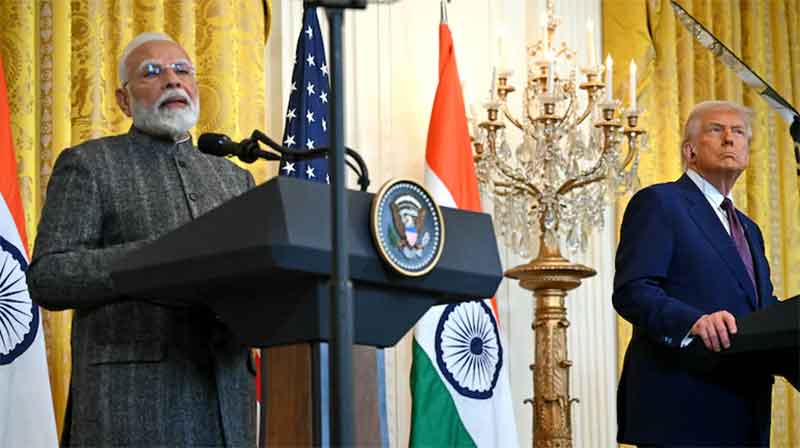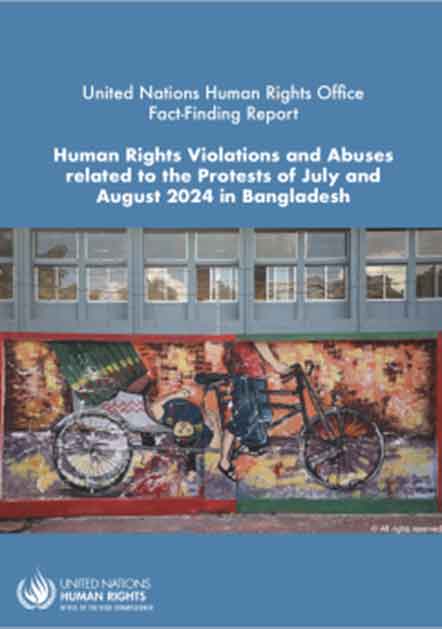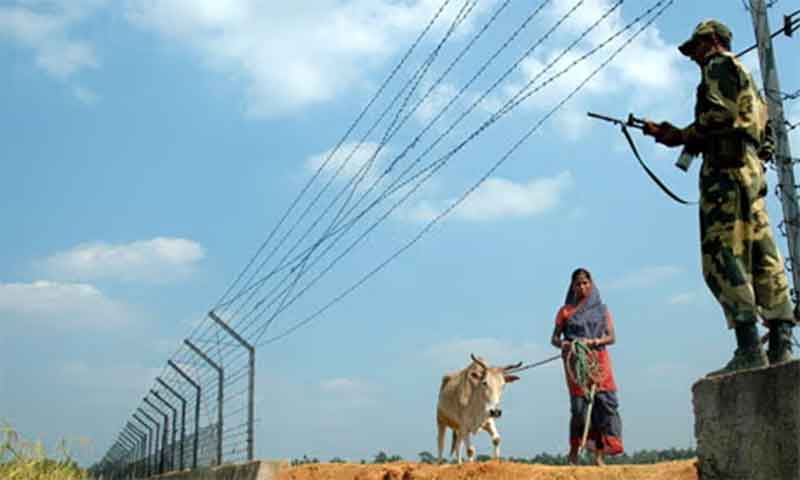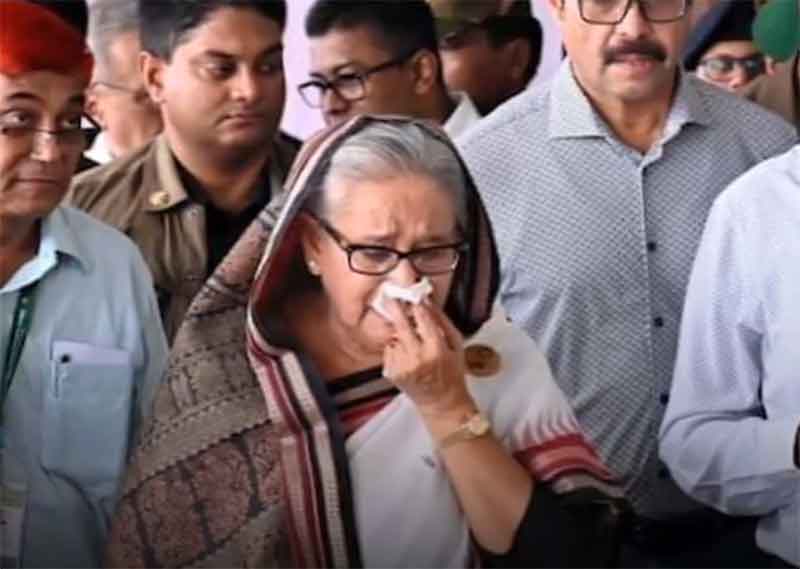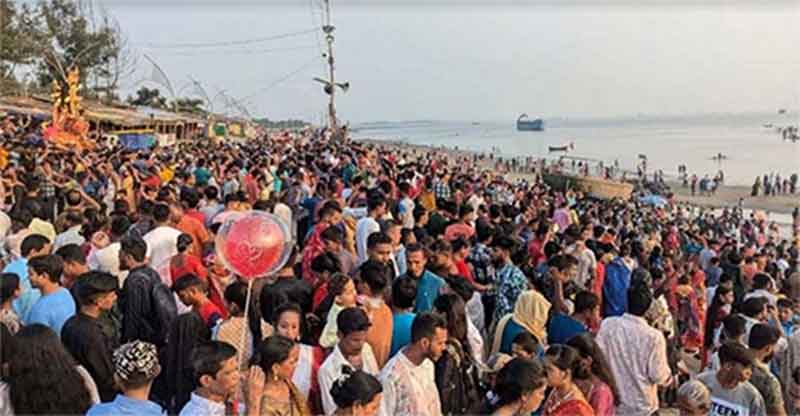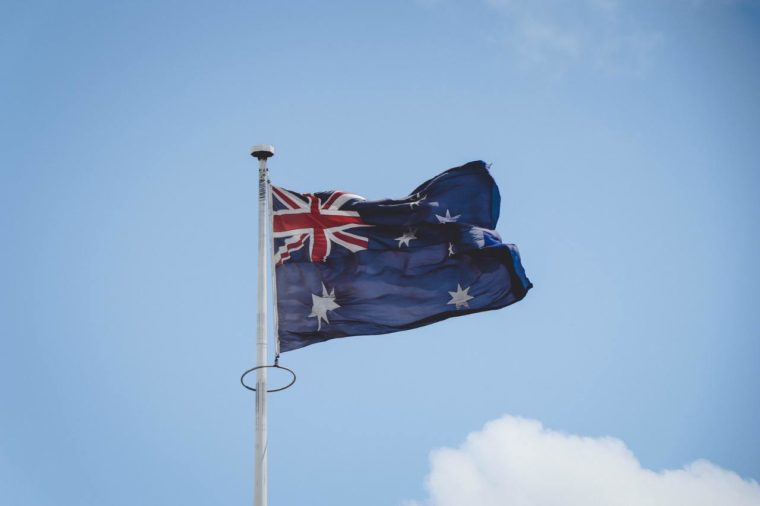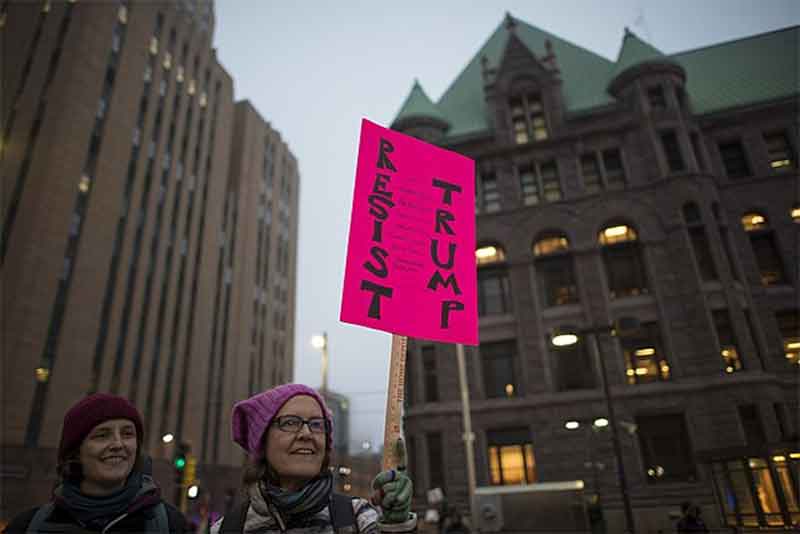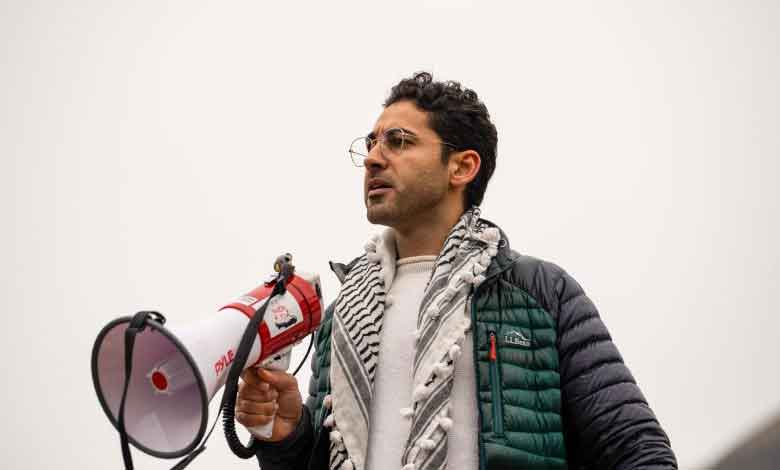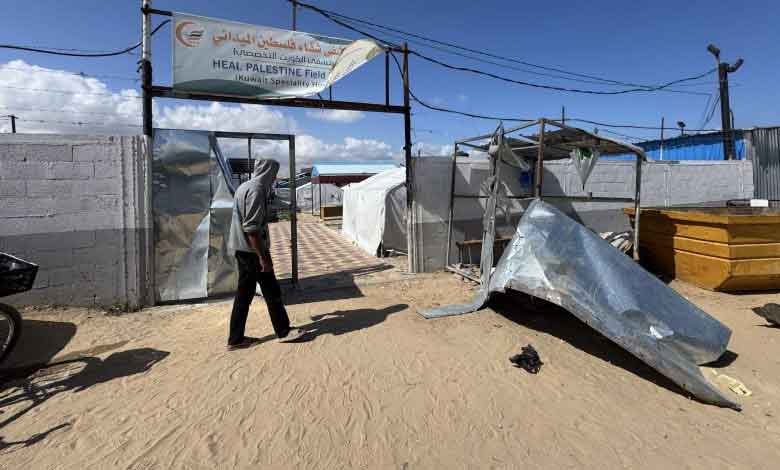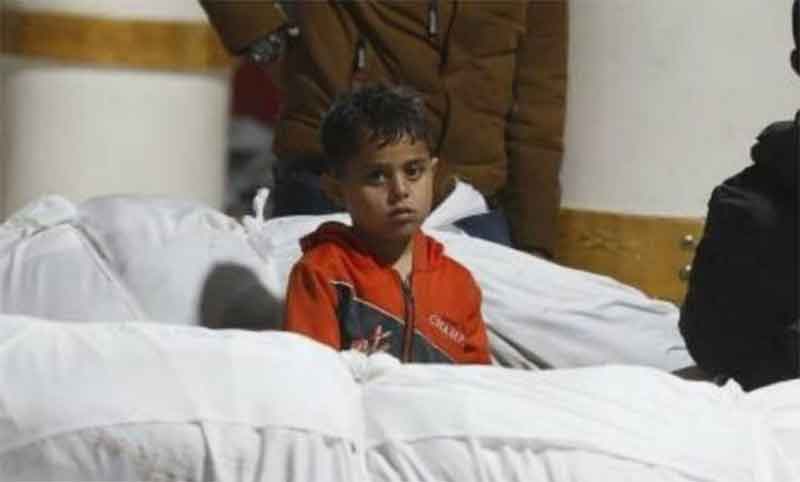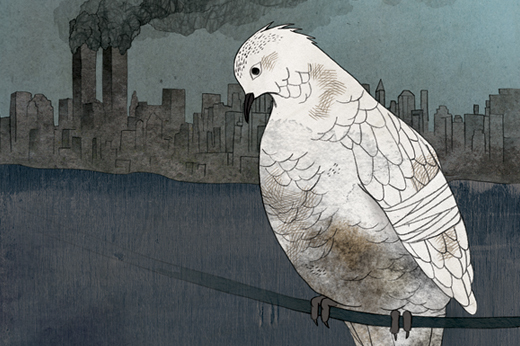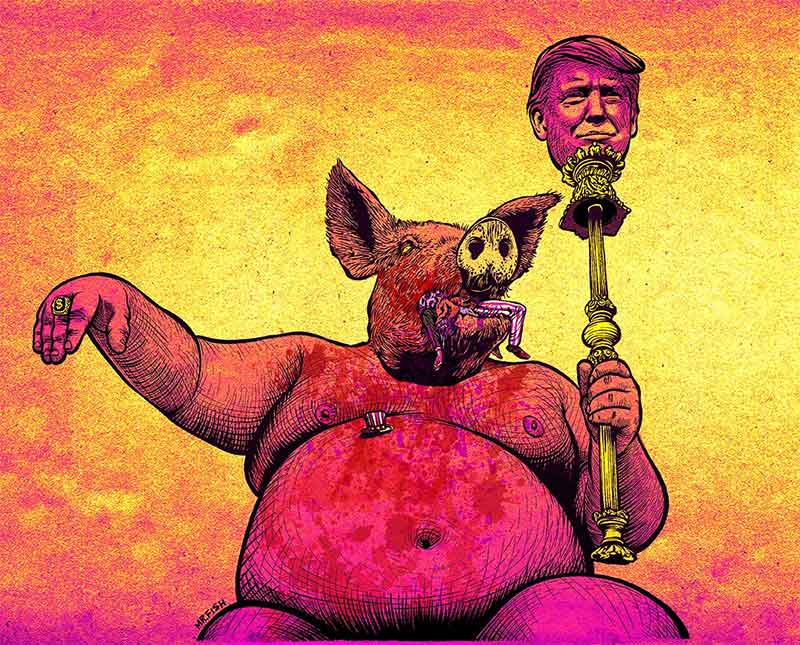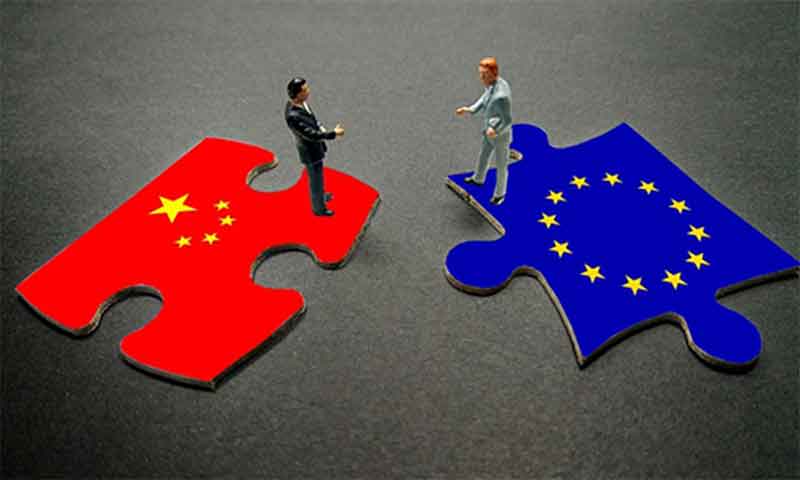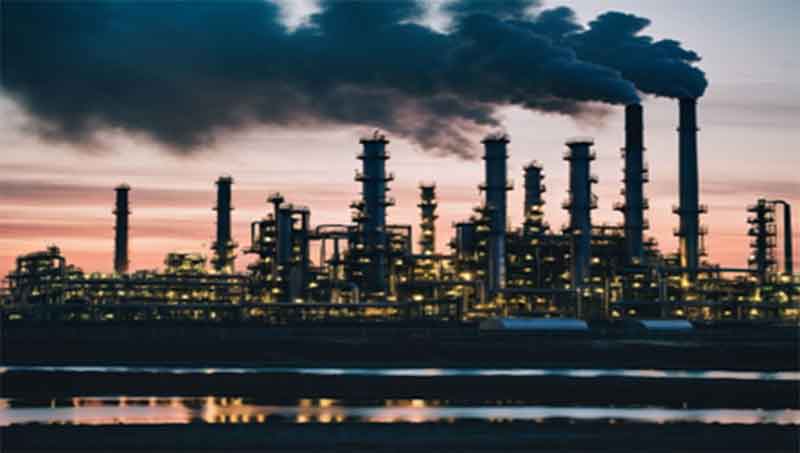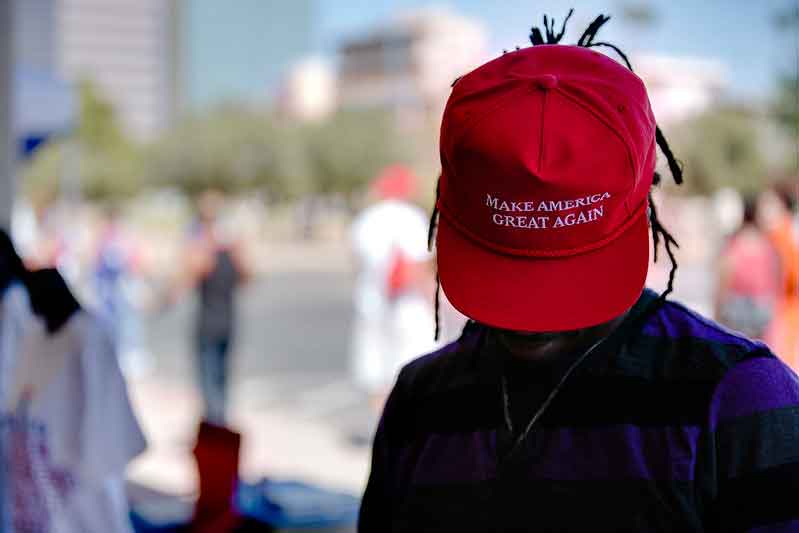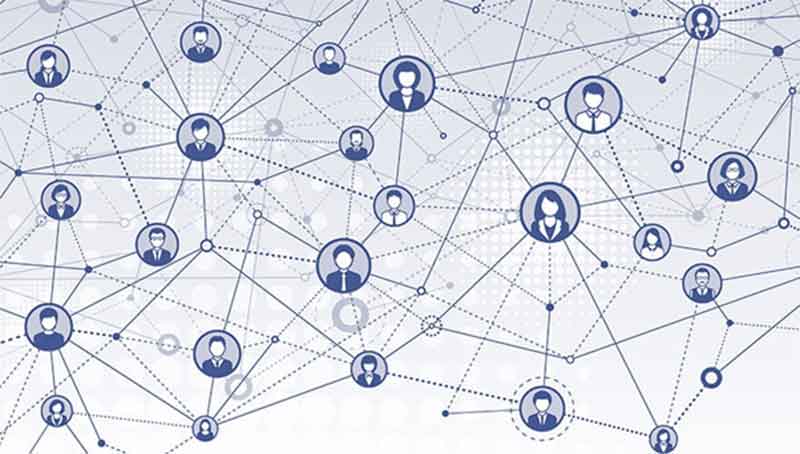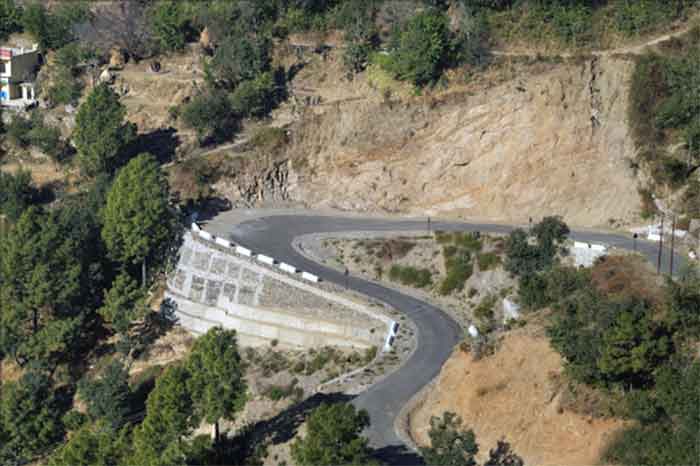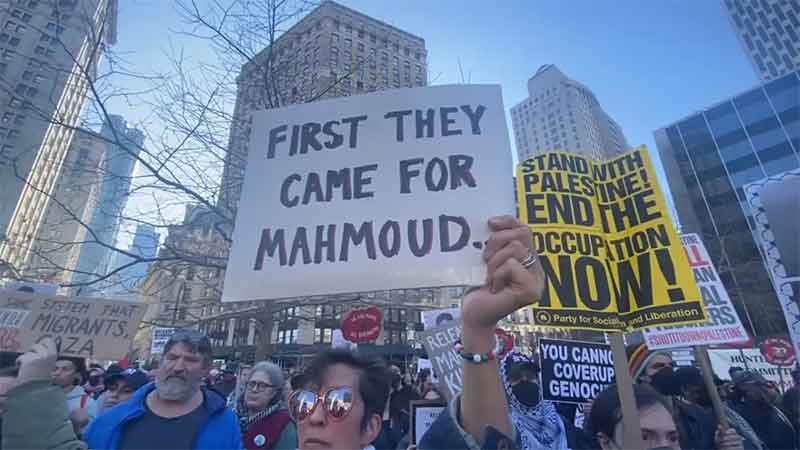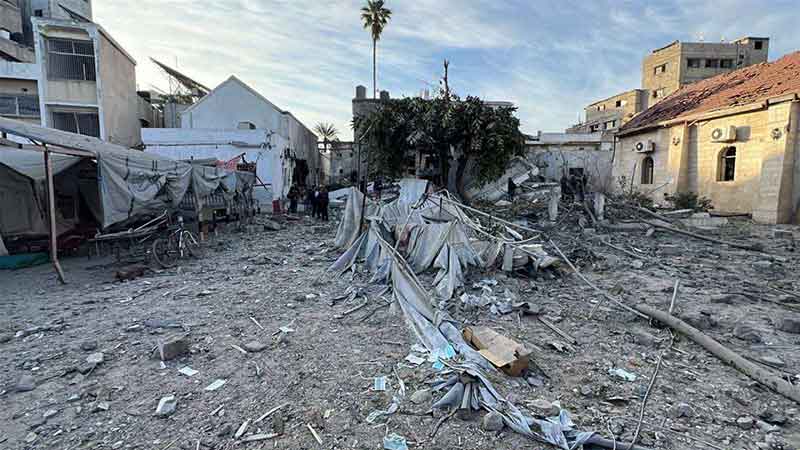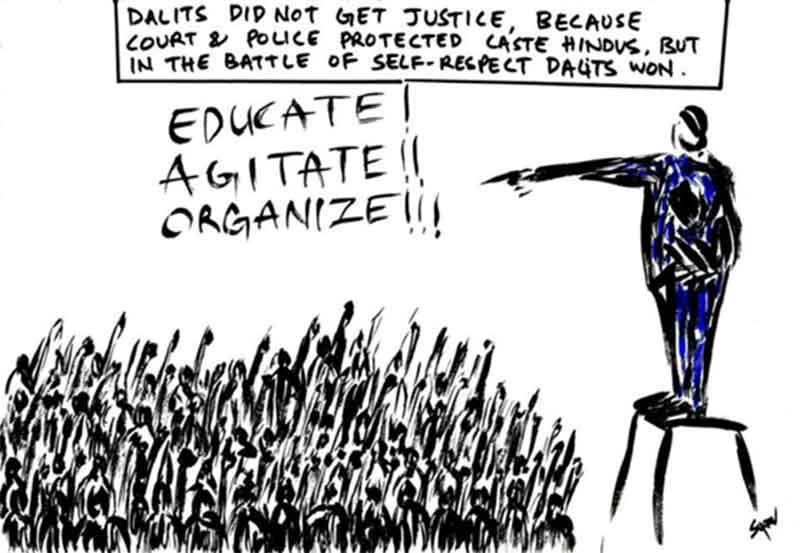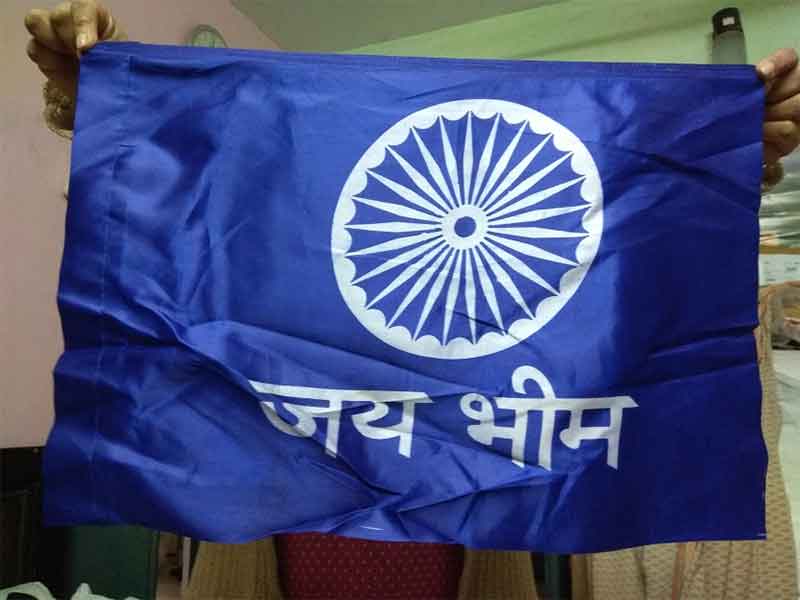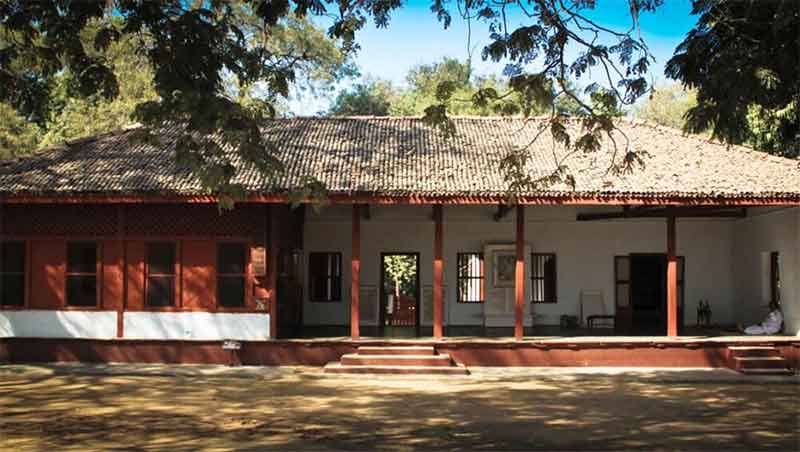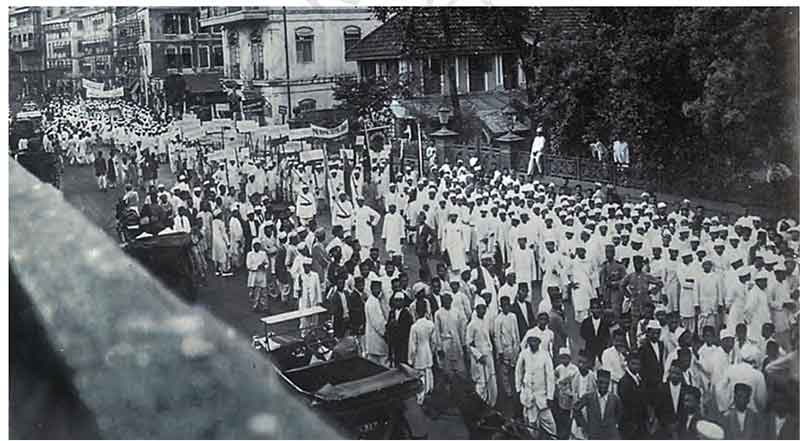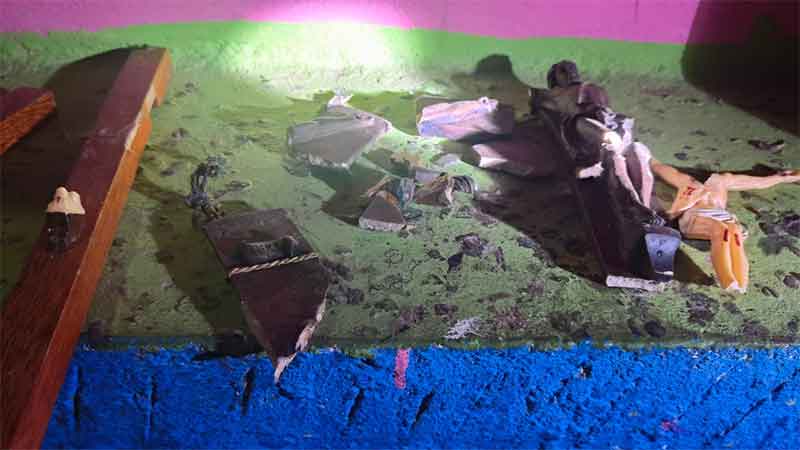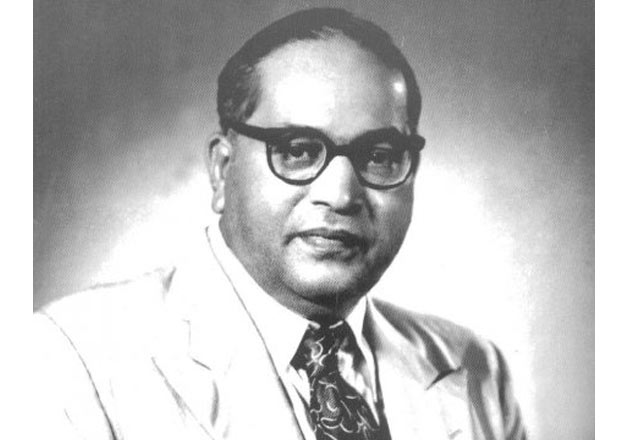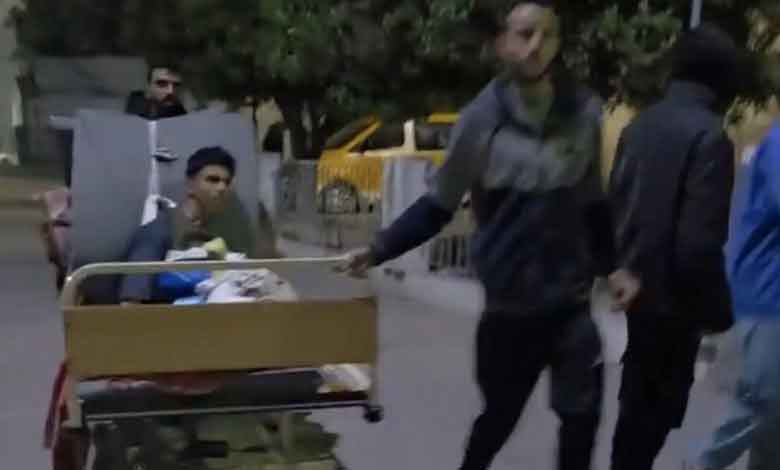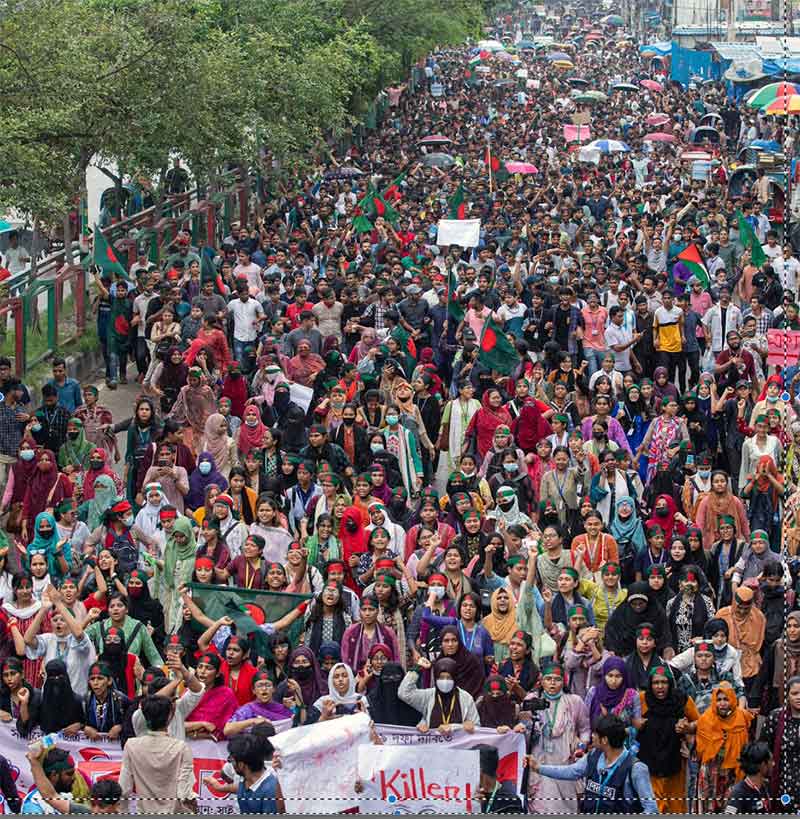
The recent mass student protests in Bangladesh, which succeeded in toppling the government and empowering a Western-friendly interim leader, have attracted widespread attention, although many in the West know little about Bangladesh. it is the eighth most populous country in the world and the most densely populated, home to nearly 170 million people. It is situated just north of India and abuts the Bay of Bengal, a crucial route for trade and military purposes.
The economy is almost entirely dependent on its garment industry, which accounts for over 80% of exports and manufactures ready-made clothes for outfits such as H&M and Zara. Garment workers are almost all women who earn less than a subsistence wage and work in dangerous conditions, as in the 2012 factory fire that killed 12 workers. A mass workers’ struggle in October 2023 did win a small wage increase, day care and maternity leave.1
Although Bangladesh was recently said to have a high growth rate of 5.6%, bigger than India’s, in actuality a crisis is looming. Export demand has been falling and huge infrastructure projects failing due to corruption and high borrowing costs. The rich take their profits out of the country, while poor workers cannot afford necessities.2
The major issue underlying the recent mass student protest is the lack of employment prospects. The fact that the government responded by killing about 540 students and jailing over 6000 thousand only increased their militancy. Workers have participated, but only as individuals. As the military came to realize that Sheikh Hasina could not prevail, the students had a path to victory and overran the palace and many government buildings on August 5 and drove her into exile. They then induced an 84 year old US trained neoliberal economist, Muhammad Yunus, to take over an interim government.3
And like many conflicts today, underlying the unrest is the contest between the US and China for military, political and economic world control.
Background
Since the mid 1700s, until Indian independence in 1947, Bangladesh was part of the British colonial project in India. As always, colonial rulers stayed in power in India by exploiting ethnic divisions, in this case between Hindus and Muslims. Thus with the end of British rule came partition into mostly Muslim Pakistan and Hindu India. Pakistan was in turn, divided into East and West. Darker skinned Bengalis, who mostly lived in the East, again became the target of racist oppression from the West Pakistan. Sheikh Mujibur Rehman, head of the Awami League, won an election in East Pakistan in 1971, after which West Pakistan arrested him and launched a genocide that killed about two million and caused widespread famine. The small Hindu minority was especially targeted. Finally, the Indian army joined the East’s fight, West Pakistan (now Pakistan) was defeated, and Bangladesh was born.4
It is noteworthy that at this time, in the midst of the Cold War, Nixon wanted to build relations with China versus the Soviet Union. According to Henry Kissinger, Pakistan was then the only channel to China and so the US sided with Pakistan against Bangladeshi independence. Nixon even sent the Seventh Fleet to the Bay of Bengal and warned India not to attack Pakistan.5 Only when Moscow sent its fleet of warships did the US withdraw.
Sheikh Mujibur Rehman became the first ruler of Bangladesh and declared it a socialist state in 1975. He nationalized 580 industrial plants and banks and established a national oil and gas corporation, Petrobangla, to oversee exploration in the Bay of Bengal. He was assassinated in a military coup that same year. The new ruler, General Zia, formed the Bangladesh Nationalist Party (BNP) on Islamic and anti-Indian lines, even declaring Islam the state religion in 1978. In 1990, another uprising led to a parliamentary system. Rehman’s daughter, Sheikh Hasina was voted into power in 1996-2001 and again in 2008, reinstating the Awami League until her recent overthrow.3
International Players
The two elections that were won by Sheikh Hasina were heavily influenced in her favor by the US. The US put visa restrictions on elites who opposed her, thus limiting their ability to invest and live in expensive real estate in the US and Canada. Nonetheless, Hasina has lately been making deals with Russia and China, who share the US interest in the Bay of Bengal, a key route for maritime traffic between the Indian and Pacific Oceans. She recently began building a naval base north of the Bay of Bengal that houses two Chinese built submarines and was considering giving the Chinese army access to the base. Russia built a nuclear power plant in Bangladesh that Hasina paid for in Chinese yuan rather than dollars in order to bypass US sanctions on Russian banks.6
This is all part of China’s Belt and Road Initiative that has built relations with Bangladesh, Myanmar, and Sri Lanka through economic, military and infrastructure development, including ports, roads, pipelines and railways and a growing naval presence. The US understands now that it must aim for a navy that is dominant in the Bay of Bengal and Indian Ocean and perhaps a military base on Saint Martin Island in the Bay in order to maintain influence in Southeast Asia. At the moment US is increasing its efforts but it is not catching up to China.7
The Indian navy has coastal surveillance radar in Bangladesh, with which the US wishes to partner. However, since the Ukraine war, India has been distancing itself from the US, buying Russian oil and becoming friendlier with China. New governments in Pakistan, Sri Lanka and Nepal are being more friendly to the US.8
The Current Struggle
University students have been the main perpetrators of the current rebellion, concerned over the lack of jobs and an inflation rate of 10%. In 2013, civil service jobs became scarce as the government put in place quotas reserving 56% for descendants of freedom fighters, women and minorities. Since private sector jobs have been disappearing too, this left most students with few prospects and a 40% youth unemployment rate. Hasina’s government actually scrapped the quota system in 2018 after earlier protests, but this decision was overturned by the courts, although the government was again appealing.8
The major problem, VJ Prashad, says, is that the students have no program.3 However, they do – the problem is that it has no class consciousness. At a webinar on August 14 organized by the Center for Political Education, leaders of the students, garment workers and other activist groups in Bangladesh described their goals. They all called for an end to fascism, defined as a lack of free speech, the ability of rulers to murder with impunity, and discrimination based on race and religion. They all called for free elections, multiple parties, representatives of labor in government and more civil rights. None mentioned capitalism or the economic system as a target for change or even seemed to be awareof the dynamics of capitalist power.
Interestingly, the protests were centered at the Building Resources Across Communities (BRAC) University, which is tied to an organization of the same name. BRAC is heavily funded by millions of dollars from USAID and the Gates Foundation, which has led some to speculate that the US was behind the protests. Last year the US also supported protests against Hasina by the opposition BNP party and its Islamic allies.9
There is a history of left parties in Bangladesh, but an unfortunate one. The two largest parties, Workers’ Party and Jatiya Samajtantrik Dal (JASAD)limit themselves to parliamentary politics and are affiliated with the Awami League. Six smaller parties, including the Communist Party, are part of a coalition called the Left Democratic Alliance that calls for fair elections and proportional representation. None call for revolutionary change, for challenging capitalism itself.10,11
Muhammad Yunus, the interim leader promoted by the students, is closely tied to capitalism and the West. He is an economist trained at Vanderbilt University and founder of the Grameen Bank, and he professes concern for the poor. The solution he promotes is micro-loans, whose interest rates are lower than those of banks and are supposed to enable small business ventures. In reality, repayments must begin within a week and if not received, they are referred to debt collectors. The majority of loans are to women and are actually used for food, medicine or just survival. Defaulters then have to go into further debt to try and repay them. Many have to flee creditors and a few commit suicide. However, Yunus and his bank have made huge profits, $10 million in 2010 alone, which has allowed Grameen to invest in a variety of industries.12
For his efforts, Yunus was awarded the Nobel Peace Prize in 2006, for which he was promoted by his close friend Bill Clinton. In 2009, Obama awarded him the US Presidential Medal of Freedom and the US Congressional Gold Medal in 2010. Washington hopes Yunus will help distance Bangladesh from China and implement the austerity measures demanded by the IMF in exchange for the $4.7 billion it gave Sheikh Hasina last year.13
Key economic posts in the new government such as the Finance Ministry and head of the Central Bank, are being given to those with ties to the IMF and international capital, and garment manufacturers are being promised stability. Religious Affairs is in the hands of an Islamic fundamentalist; the military has said it is ultimately responsible for governance. Two students and some civil rights advocates have received minor posts in telecommunications and sports.14
The Prospects
To what degree the US initiated or promoted the recent protests and the change of government will probably not become clear or proven for many years. But what is clear is that there is an intense competition raging in this area between the US and China and Russia for power and influence. India, by far the biggest regional prize, has been tilting away from the US towards China. Some smaller states are tilting towards the US. Others, like Burma (or Myanmar) are in uncertain chaos.
The other certainty is the students and workers in all of these countries are the losers. As in many other cases of large rebellions that even succeed in toppling governments, as in Sri Lanka recently or here in Bangladesh, no advantage is gained for the rebels. If there is no program or organization that aims to analyze and topple capitalism, then all that changes is the identity of the exploiters. Be they Chinese, Russian or American, the exploitation is as sure and as deadly.
If workers are to be empowered in this universally capitalist world, it will require international unity between movements of students, workers, and soldiers to overthrow a system, not just the individuals in charge, and reorganize society in a new way – without owners and profits. Laying the basis for such massive change means building smaller reform struggles, but ones that rely on bottom up organizing and exposing the nature of the capitalist relations. It also means critiquing the revolutions of the past that attempted to build communism, in China and the USSR, but reverted to capitalism in the end. We must make only new errors, but we must be successful or we will all be embroiled in devastating worldwide conflict and destruction.
Ellen Isaacs is a physician, anti-racist and anti-capitalist activist, and co-editor of multiracialunity.org. She can be reached at [email protected]
3. https://www.counterpunch.org/2024/08/09/the-conundrums-of-bangladeshi-politics/
4. https://countercurrents.org/2024/08/understanding-the-bangladesh-crisis/
6. https://foreignpolicy.com/2023/08/03/washington-bangladesh-democracy-elections-hasina/
7. https://cimsec.org/the-bay-of-bengal-gray-zone-u-s-navy-roles-in-integrated-campaigning/
10. https://www.cpusa.org/article/international-notes-communists-worldwide-demand-democracy-and-peace/
11. https://jacobin.com/2024/08/bangladesh-student-protests-quotas-repression
12.https://www.wsws.org/en/articles/2014/01/04/micr-j03.html
13. https://www.wsws.org/en/articles/2024/08/08/irjy-a08.html
14. https://www.wsws.org/en/articles/2024/08/14/jztk-a14.html

